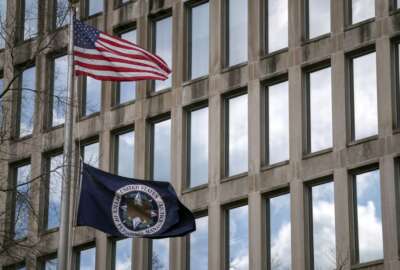President Biden at last picked a third nominee to fill the Merit Systems Protection Board, which hasn’t had a single member for more than two years.
The president has chosen Tristan Leavitt, the MSPB’s general counsel and acting chief executive, to fill the last spot on the board.
Leavitt has been leading the MSPB since March 2019, when the holdover term for the board’s last remaining board member expired. Before the MSPB, Leavitt spent a year-and-a-half at the Office of Special Counsel, where he served as the principal deputy special counsel and acting special counsel for a period of time.
He also spent eight years on Capitol Hill, working on congressional investigations and federal workforce policy issues for former House Oversight and Government Reform Committee Chairman Jason Chaffetz (R-Utah) and Sen. Chuck Grassley (R-Ill.). Grassley has been a vocal critic of the board’s current situation and is a leader on the Senate Whistleblower Protection Caucus.
Biden tapped employment attorney Cathy Harris as his choice to lead the MSPB back in April. In June, he selected Raymond Limon, the Interior Department’s chief human capital officer, as an MSPB member.
The MSPB only needs two new members to restore a quorum, and it’s rare that presidents have an opportunity to fill all three seats at once. Past Senate Homeland Security and Governmental Affairs Committee leaders have considered and advanced the three nominees, usually a mix of Democrats and Republicans, together as one group.
With Leavitt’s planned nomination, the committee should be able to move more quickly now to advance the president’s three nominees and eventually restore a quorum to the board.
A committee aide told Federal News Network the panel will hold a hearing for the MSPB nominees in “the coming weeks.” The Senate doesn’t return from August recess until Sept. 13.
Former President Trump had his own opportunity to fill all three board seats, but his nominees never made it through the Senate confirmation process.
The board has been without a quorum for more than four years, including the entirety of the Trump administration. The situation has prompted rare bipartisan concern from House members.
The board’s vacancies are historic, leaving both employees and agencies in limbo while they wait for a functional board to consider their appeals, known as petitions for review. The MSPB has 3,365 petitions for review awaiting action from confirmed board members, according to the agency’s latest data.
MSPB attorneys have been sorting and preparing the casework for those petitions in the event that Senate-confirmed members return to the board, work that Leavitt has been supervising in his capacity as the agency’s acting chief executive.
Some federal employee groups have said time is of the essence to restore some functionality to the board.
“With the formal nomination of Leavitt, the Senate will now have three very well-qualified nominees to serve on the MSPB,” Bob Corsi, president of the Senior Executives Association, said Thursday in a statement. “It is of the upmost importance that they are confirmed and confirmed swiftly. Employee rights are at risk. The existence of the board itself is at risk. Congress has no time to waste. We urge the Senate to expeditiously advance these nominees through committee and confirm them to the board.”
The backlog creates hardships for federal employees who have been waiting years for justice on their cases, but it may also generate financial expenses for agencies. Inevitably, the board — whenever it has Senate confirmed members — will reinstate federal employees to their previous jobs, and agencies will owe them back pay.
The board also faces more uncertainty. A recent opinion from the Court of Appeals for the Federal Circuit strongly hinted that it’s closing in on a decision on McIntosh v. Department of Defense, which will decide whether the board’s judges are “principal officers” who need to be appointed by the president and confirmed by the Senate in order for their decisions to be binding on any federal agency.
If the court decides the board’s judges are in fact principal officers, only a quorum of the MSPB’s Senate-confirmed members can take action to restore authority to the agency’s administrative judges.
Copyright
© 2024 Federal News Network. All rights reserved. This website is not intended for users located within the European Economic Area.





